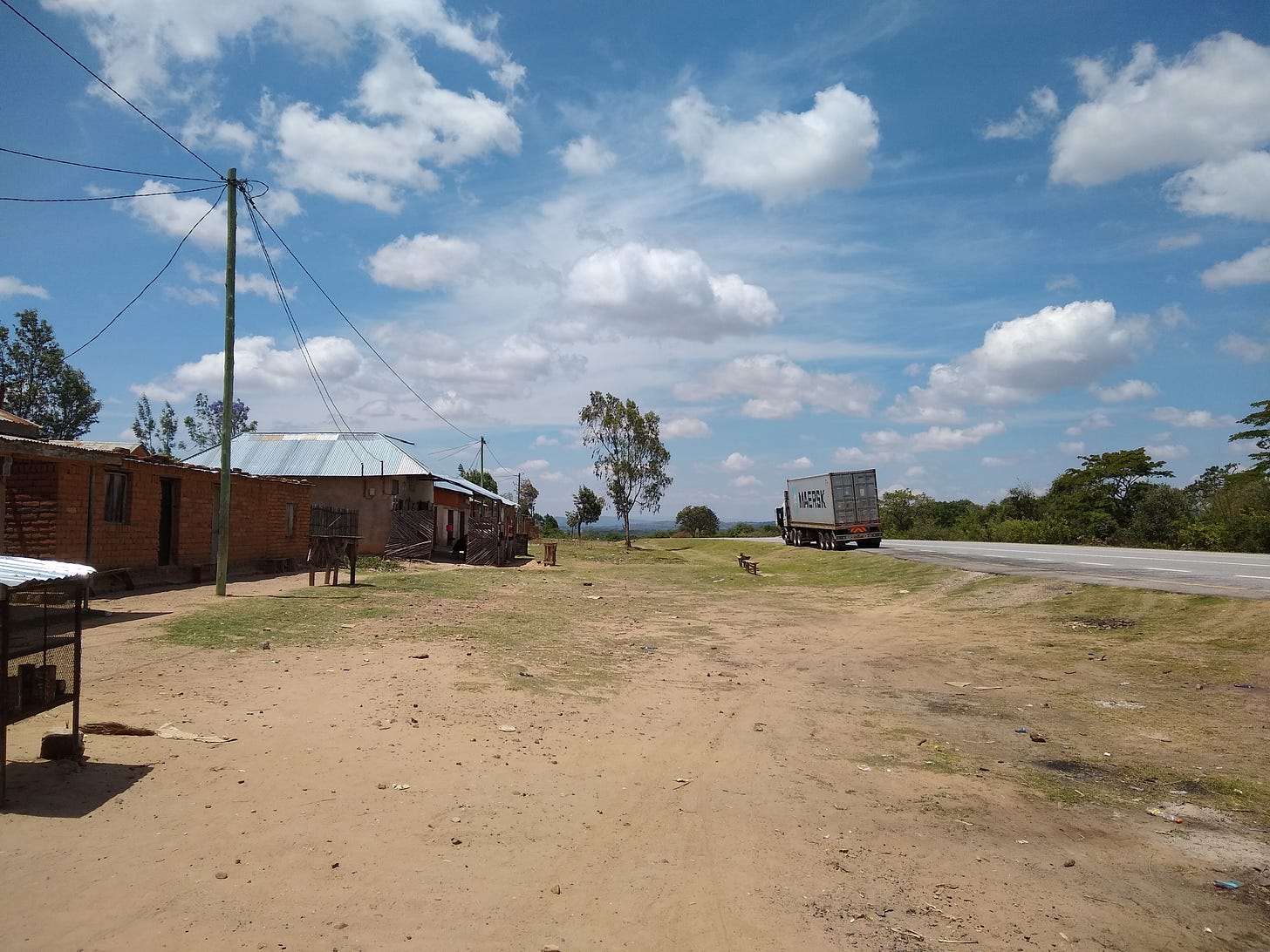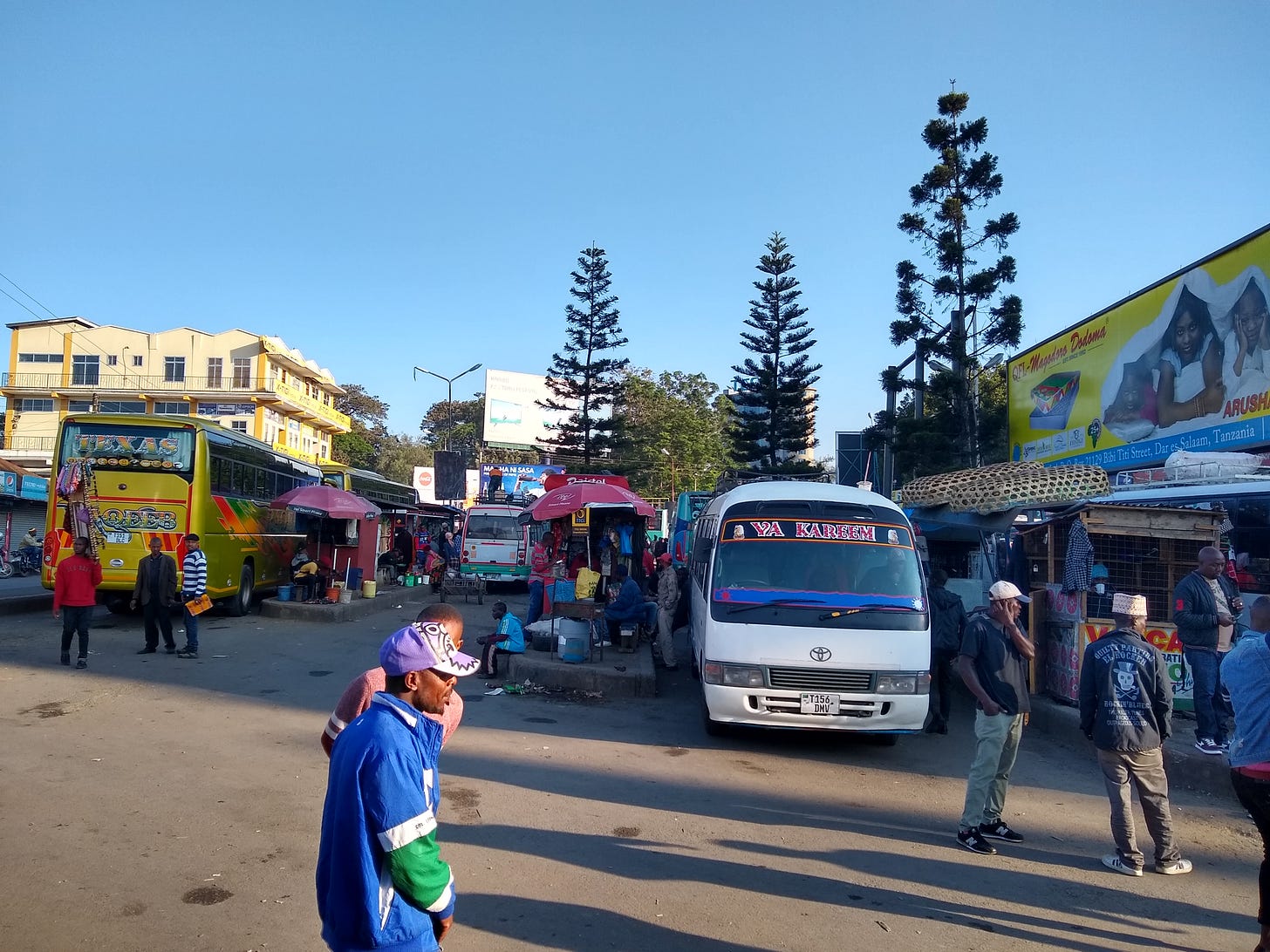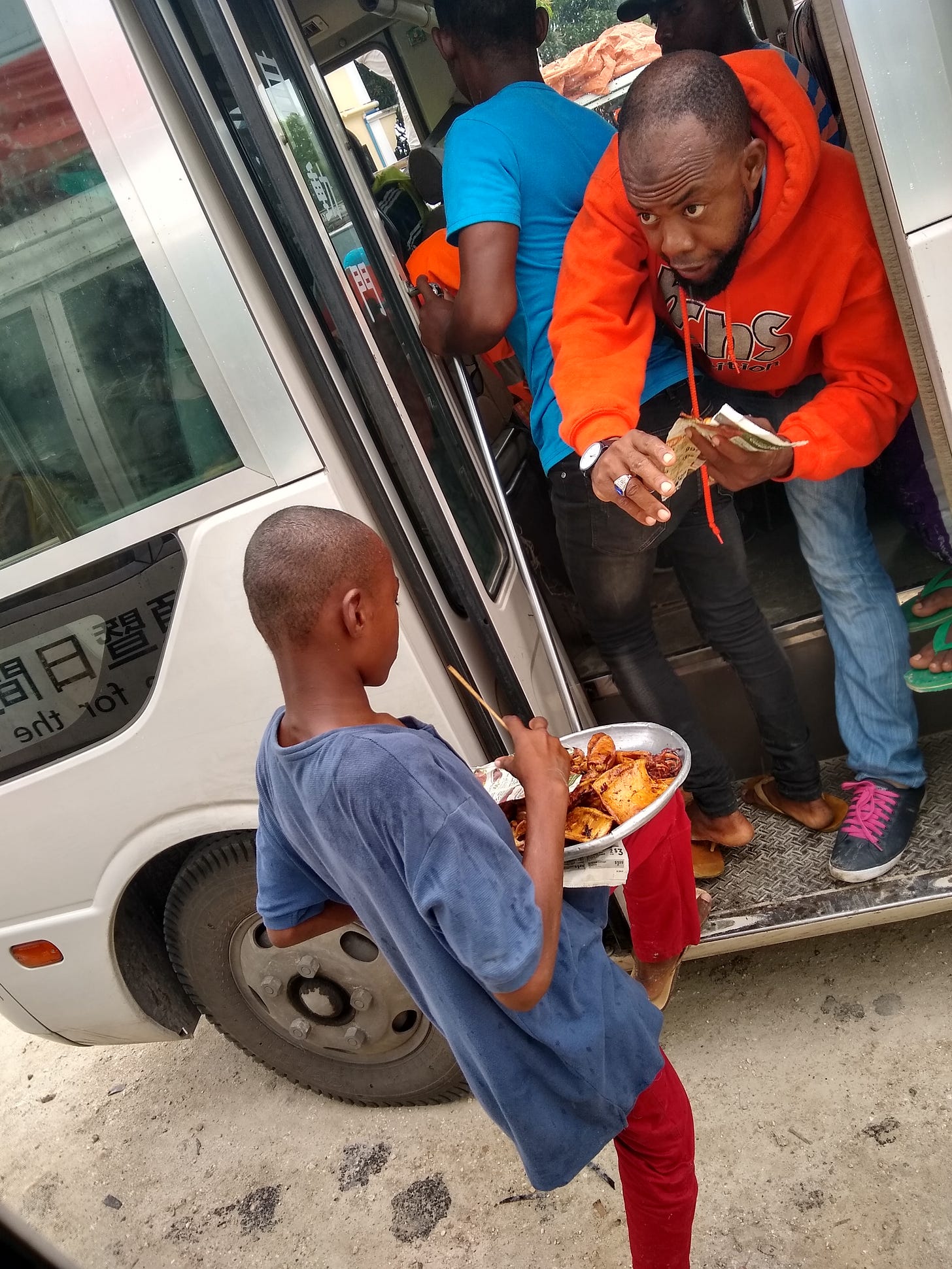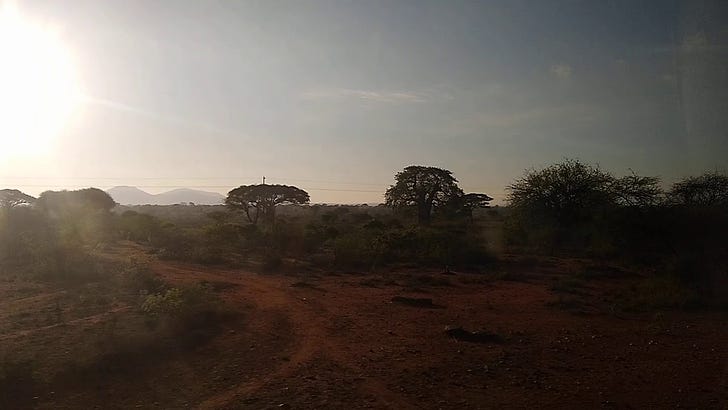It’s dark in the market town, 5:30 am.
But the sunrise is coming, the roosters are already crowing and then comes the first call to prayer, drowning out the roosters, it echoes as the other mosques pick up the song.
There are no other sounds. Just the call.
The bus station is quiet, the touts haven’t gotten up yet. A man with a thermos of hot water is selling small cups of instant coffee.
The bus from Kondoa to Dar es Salaam leaves on time, or close enough to it.
The sun rises over the hilly forests as the bus speeds along to a steady tropical hip-hop beat coming from a TV showing music videos, they’re mostly local (a genre known as Bongo flava), a few are from Congo or Nigeria.
We stop to take on passengers and a live chicken is loaded into the cargo space below. Semi-luxury they call this one, that has as much to do with where they put the cargo as the seats.
It is surprisingly easy to get around by bus in rural Tanzania. There are major cities in Canada that don't have the same frequency of bus service as Kolo, a tiny village that barely appears on the map.

It helps that Kolo is on the highway. Off the road, it's a different situation. There are some villages that are only accessible by motorcycle, even a 4x4 would have trouble on the narrow tracks.
They write your name on the ticket if you're traveling long distance. If you're travelling to the next town or two over, you just get on the next bus and pay the man on board.

In Arusha, a few days earlier, the woman with the ticket book asks me for my last name. She looks at me blankly and then writes “Messi,” like the soccer player. It's the only "white" last name she knows how to spell.
At one point, as we are pulling out of a road town half an hour south of Kondoa, the bus stops and reverses. Is there a problem? No, the driver of a smaller bus that's running late has called our driver and gotten him to wait so that a couple of his passengers can get on the bus to Dodoma and Dar es Salaam. If you don't get this one, you won't make it until tomorrow.
Travel is surprisingly easy in rural Tanzania until it isn't. There's a certain point where there might not be another bus coming. They are all independent, privately owned, there's no real schedule, each one has a time it leaves but many will wait until they are full, even if it takes an hour.
So you stand at the side of the road wondering has as it passed already? Has it been delay delayed? Is it not coming at all? Has it been pulled off the road by the police? Has it been in an accident, god forbid?
So you wait until you give up, you can always hire a man with a motorcycle to take you a little further, maybe a tuktuk will pass, maybe you can pay someone in a car to take you.
On the bus, the music videos keep playing, bouncy, upbeat, a child cries, another coughs, the alarm of the speed regulator goes off as we go over 80. The horn honks to tell children, goats or a moto that we are coming.
We pass through pasture lands of short trees and long grass; small villages of mud brick with tin roofs held down by bricks; road towns with their shops and small restaurants, all with a glass case of fries - chips - outside, next to the grill.
Herds of cattle and goats stand at gas stations.
Every stop is as short as possible, new passengers are hustled on the bus.
If the African condition is waiting, it is punctuated by brief flashes of action, of men shouting, waving hands and money quickly being handed over.
The horn honks quickly and people start running.
There are always snacks. Any time the bus stops, people come to the window selling chips, cookies, fruit, loafs of bread, chicken wings, samosas, little round doughnuts, soda and water. At a weigh station, there’s a man with a long pole, on top is a circle with hooks, a grilled cob of corn hanging from each one. Easier for the passengers on the taller “luxury” and “semi-luxury” coaches to reach. At the bus stations, men sell watches, phones and sunglasses.

In Mkoani, on Pemba Island, a kid was selling grilled squid at the bus station. I don’t see that on the mainland.
The work of the bus requires several people. There is the driver, a man who checks tickets, a man who takes money and checks tickets at the front door and a man who is counting all of this on a notepad and holds the money.
At each larger stop, there is an agent who takes money and writes out people’s tickets so they can get on the bus faster.
Most of the workers get off before the end, when there is less work to do.
The tropical breakbeats don't stop.
Everyone gets a seat though and there are seatbelts, though as often as not, they don't work. This is semi-luxury, not a dalla dalla.
At some point we take on more passengers and they have to stand. They all get off in a small town and a cop gets on and there is some sort of argument - “seati” (Swahili for seating) is the only word I can make out. It does not last that long and soon we are back on the road. We don't pick up more passengers from the crowd on the other side of the police checkpoint.
And then it's been six hours and the music videos have all played three times and an increasingly greasy child has been kind of sitting on you for half the time and there's still six more hours to go.


